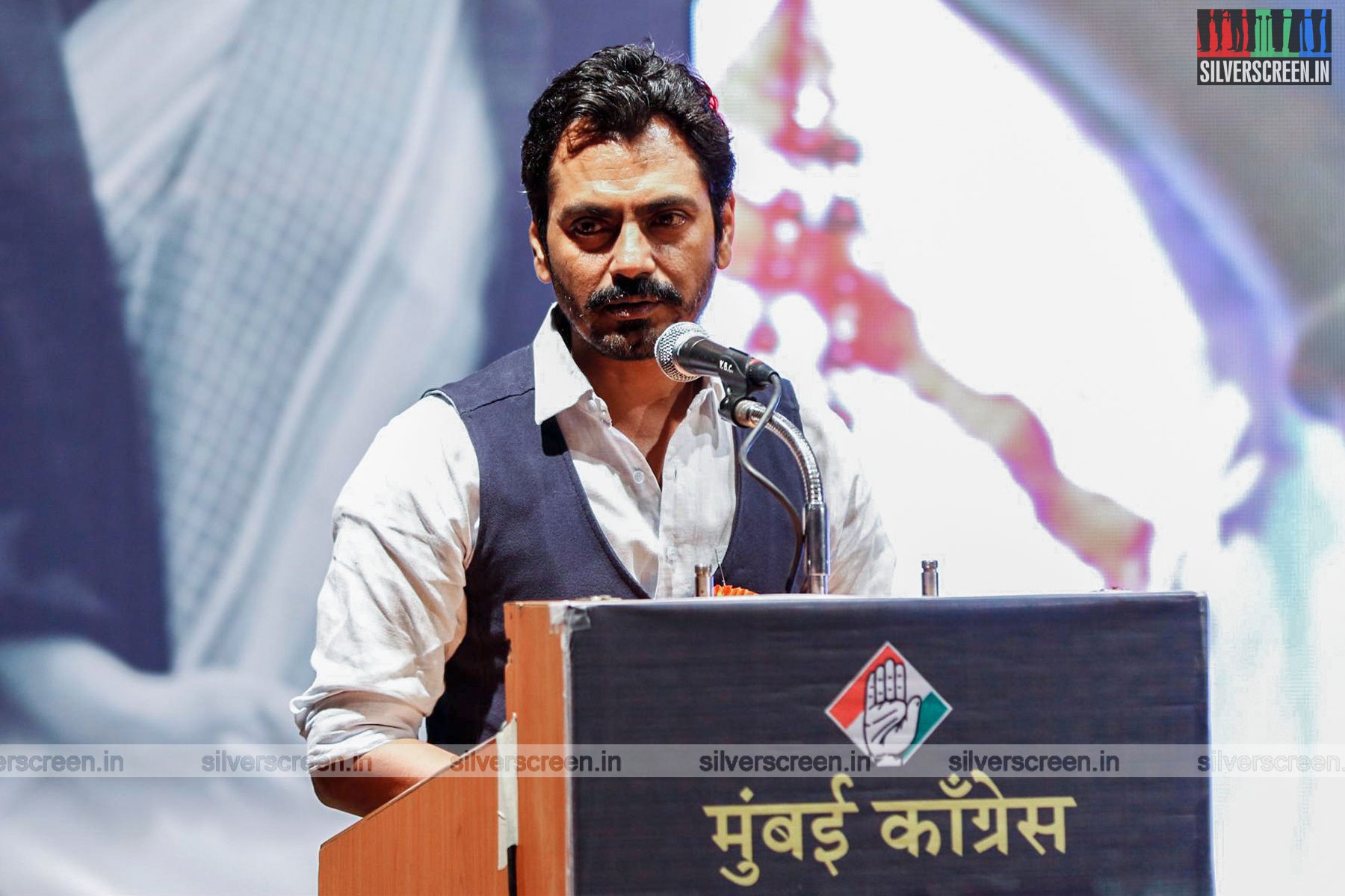Since the November 2016 Supreme Court interim order, many are wondering whether sitting through the National Anthem in cinema halls can get you arrested. The answer, say legal experts, is – ‘No’.
Two contradictory incidents tell the story of how much confusion the November 2016 Supreme Court interim order created.
Loyola student Bejon K Vinod was manhandled and thrown out of the recent Chennai International Film Festival because he refused to stand for the National Anthem. He tells Silverscreen that for the next eight hours, he and his friends waited at the police station, googling and showing the police that there was no law under which they could be arrested.
The police, it appeared, did not know the rules.
Recently, A Sampath, a journalist with a Telugu news channel in Hyderabad, was instrumental in getting two people arrested at a screening of the horror film Chitrangada. According to a Scroll report, an FIR was registered against Syed Safeer Hussaini and his friend Mohammed Ilyas because Hussaini sat through the National Anthem.
Hussaini, who works in Australia, told Scroll, “I had sprained my leg climbing the stairs.” Sampath, meanwhile, said, “Earlier, I was watching another movie, Dwaraka, when I saw a couple, one of whom did not stand for the National Anthem. I felt bad then. And when I came for this movie and I saw the same situation being repeated, I felt really annoyed.”
The two were finally released after a local politician from the Majlis-e-Ittehadul Muslimeen intervened. He told the police to ease up on the two, as they “did not know the rules in India”.
The Rules In India
In November 2016, the Supreme Court had issued an interim order to all cinemas to play the National Anthem before the screening of a film “in order to imbibe the love of the motherland”. The order said that all present must “stand up in respect” till the anthem ended, to “instill a feeling within one a sense of committed patriotism and nationalism.”
The order triggered a debate on what constitutes proper respect to the Anthem. Legal researcher Gowthaman Ranganathan says that the judgment is poorly reasoned. It only makes a passing reference to the Prevention of Insults to National Honour Act, 1971 and relies on Article 51A of the Constitution of India that prescribes Fundamental Duties, including the duty to respect the national anthem. However, nothing in the said Act or the Constitution prescribes arrest for not standing for the anthem.
“Technically, there should be no FIR [for not standing, as it is not an offence under Section 3 of the Prevention of Insults to National Honour Act, 1971]. If someone is not standing, it just amounts to a violation of the Supreme Court’s guideline, for which no arrest can be made. At most a contempt [of court] proceeding can be initiated, which is very different from arresting,” he says.
When An FIR Is Filed
The case instigated by Sampath was registered under Section 3 of the Prevention of Insults to National Honour Act, 1971 which is about a “disturbance to any assembly engaged in…singing [the Indian National Anthem]”.
Photo: Dani Charles
However, Gowthaman says that, firstly, “Offence under Section 3 is bailable, so [in any case] they cannot be sent to prison or locked in police station. Bail is a matter of right.”
Secondly, even if an FIR is filed under Section 3, it would lead to an acquittal, because, “Section 3 is about causing disturbance to singing the National Anthem, and we don’t know how sitting or standing would cause disturbance.”
Even though any arrest under Section 3 will invariably lead to an acquittal, Gowthaman says, “You see how the punishment is already meted out because the process of getting acquittal is punishment enough.”
When An FIR Is Not Filed
In most cases, says Gowthaman, an FIR will not be filed. So what should someone do if the police tries to arrest them for sitting?
Gowthaman says, “You can say that there is nothing that I did that constitutes an offence under Section 3. Because Section 3 very clearly mentions disturbance of an assembly, and not standing doesn’t amount to disturbance.”
Further, he says, “We need to check if an FIR was made. It could be a case of illegal detention where persons are kept at the station and then told to leave after some time [as in Bejon’s case]. Then there is no question of law. It is pure illegal detention. It is a case of intimidation, abuse of law, a blatant violation of constitutional guarantees.”
No Arrests For Assault
Nevertheless, a flurry of police of cases have been filed and several instances of assault reported. What is even more confusing is that there are no reported cases of arrest for those committing assault. A certain vigilantism in cinema halls is clearly being tolerated. Even before the order, in October 2016, a disabled person in Goa was assaulted when he couldn’t stand for the National Anthem before a film’s screening.
In December, the Court even had to clarify that disabled persons need not stand.
So what is the legal recourse for someone assaulted in a cinema hall for not standing? Gowthaman says, “There are provisions under the IPC under which an FIR can be made for assault (Section 351 for “assault”, Section 323 for “hurt”, Section 324 for “grievous hurt”, etc), depending on the nature of the incident. However, these are not pursued because these incidents happen in such intimidating and hostile circumstances that the person being assaulted would not have the presence of mind to file a complaint.
Because there is so much hostility against him for not standing, if he says he wants to file an FIR for assault, it will make matters worse for him – from the police and the people assaulting him.”
But, says Gowthaman, if the person insists on filing an FIR, the police would have to register it. “Also,” says Gowthaman, “if the assault amounts to what we call a ‘cognizable offence’ then the police should themselves file an FIR also.”
In Bejon’s case, the police seemed genuinely unaware of the laws. Gowthaman says, “There are so many laws – they wouldn’t even have been aware of this law until a few weeks ago. Right now, because of the judgement, and the hype around making people stand, the police feel that whatever they’re doing is right, without properly consulting the law.”
Being Manhandled & Detained
In Chennai, thus far only two cases have been filed for failing to stand for the Anthem. One is against Bejon, who was manhandled and thrown out of the Palazzo Theatre in Vadapalani during the Chennai International Film Festival earlier this year.
At the festival, a group of men created a ruckus, and verbally abused two women (one of whom was 65 years old), insisting that they leave the hall. Even as the women refused, another group started shouting at a youngster. The organisers had to stop the screening and tried calming the crowd, albeit in vain.
Speaking to Silverscreen, Bejon recalls, “It was the seventh day of the film festival and I remember I had not stood up twice before this. They had warned me but I kept telling them that I am here to watch the film, not to stand up for the National Anthem. So on the second last day of the eight-day festival, I was manhandled and pulled out by the volunteers of the festival when I again didn’t stand up, and along with me, two women I was with were held up too.”
The case got ugly when the police intervened, with the three of them taken to the Vadapalani police station at 12 pm.
Bejon says, “The film festival guys didn’t help us. Ninety percent of the audience heckled and abused us for not standing up. We were taken to the station, and surprisingly, the police weren’t too aware of the laws. This was the second such case; the first one happened at Kasi Theatre a month before this. I was with Shreela M, the same girl who had a case booked against her along with seven others when this happened the first time. She knew the laws and sat with the policemen and explained all the laws.”
Similar incidents have occurred at the International Film Festival in Kerala.
Eventually, the three were finally let off with no case against them. “We were at the station from 12-8 pm. The policemen were actually nice and read up on the laws and googled things. I know I would’ve surely got a beating had I been alone, but since I was with two women, it was not violent,” adds Bejon.
By nightfall, since there was no FIR against them, there was no case. Gowthaman points out that lack of proper legal advice and an atmosphere of hostility leads to these detentions, which are completely illegal.
Forced Patriotism
Recommended
It has been two months since then, and Bejon still doesn’t stand for the anthem. Nor does he avoid it. Another judgement is expected in April, and it worries him. He says, “I am not against the anthem. I am not against the country either. I am against the system. I am questioning the motives and agenda behind this forced patriotism, where people end up manhandling a person when they don’t stand up for those 52 seconds.”
Disability activist Salil Chaturvedi, who uses a wheelchair and was assaulted at a screening of Rajinikanth’s Kabali, wrote, “Was the love for his country (and mine) so overpowering that he felt nothing about physically assaulting someone?”
*****
Pic: Indiatimes.in
With inputs from Samidha Satapathy



